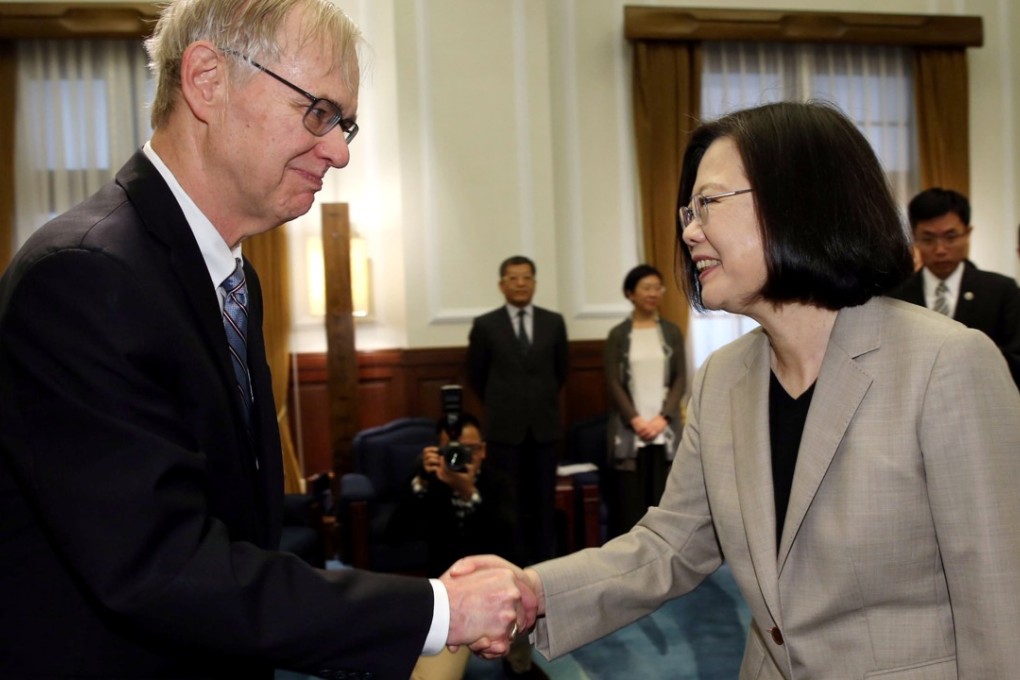Taiwan leader Tsai Ing-wen tells visiting US scholars Beijing’s ‘bullying’ is to blame for tensions
President says continued suppression has pushed self-ruled island to work more closely with United States

Taiwan’s President Tsai Ing-wen on Friday blamed Beijing for escalating cross-strait tensions, saying it has resulted in the self-ruled island drawing closer to Washington as it tries to counter pressure from the mainland.
During a meeting at her office with scholars from a Washington-based think tank led by Richard Bush, a former unofficial US envoy to Taiwan, Tsai said non-stop suppression from the mainland had only pushed Taipei to work more closely with the United States.
“Despite the latest changes in the Asia-Pacific region or in the Taiwan Strait, South China Sea or the Korean peninsula, being a responsible member of the international society, Taiwan has done all it can to maintain the cross-strait status quo in order to maintain peace, prosperity and development in the region,” she told Bush and others from the Brookings Institution.
“But regrettably, China has continued to increase its suppression against Taiwan,” Tsai said.
She listed as evidence Beijing’s unilateral launch of a new aviation corridor over the Taiwan Strait, encirclement drills by its fighter jets and navy vessels around the island, forcing foreign companies to designate Taiwan as a province of China on their websites, and barring Taipei from involvement with world bodies.
“But China’s bullying will not alter Taiwan’s resolve to reach out to the world,” Tsai said.
The Taiwanese leader said that bullying was to blame for changes to the cross-strait status quo which would undermine peace and stability in the region, and it was not conducive to good ties or welcomed by the international community.